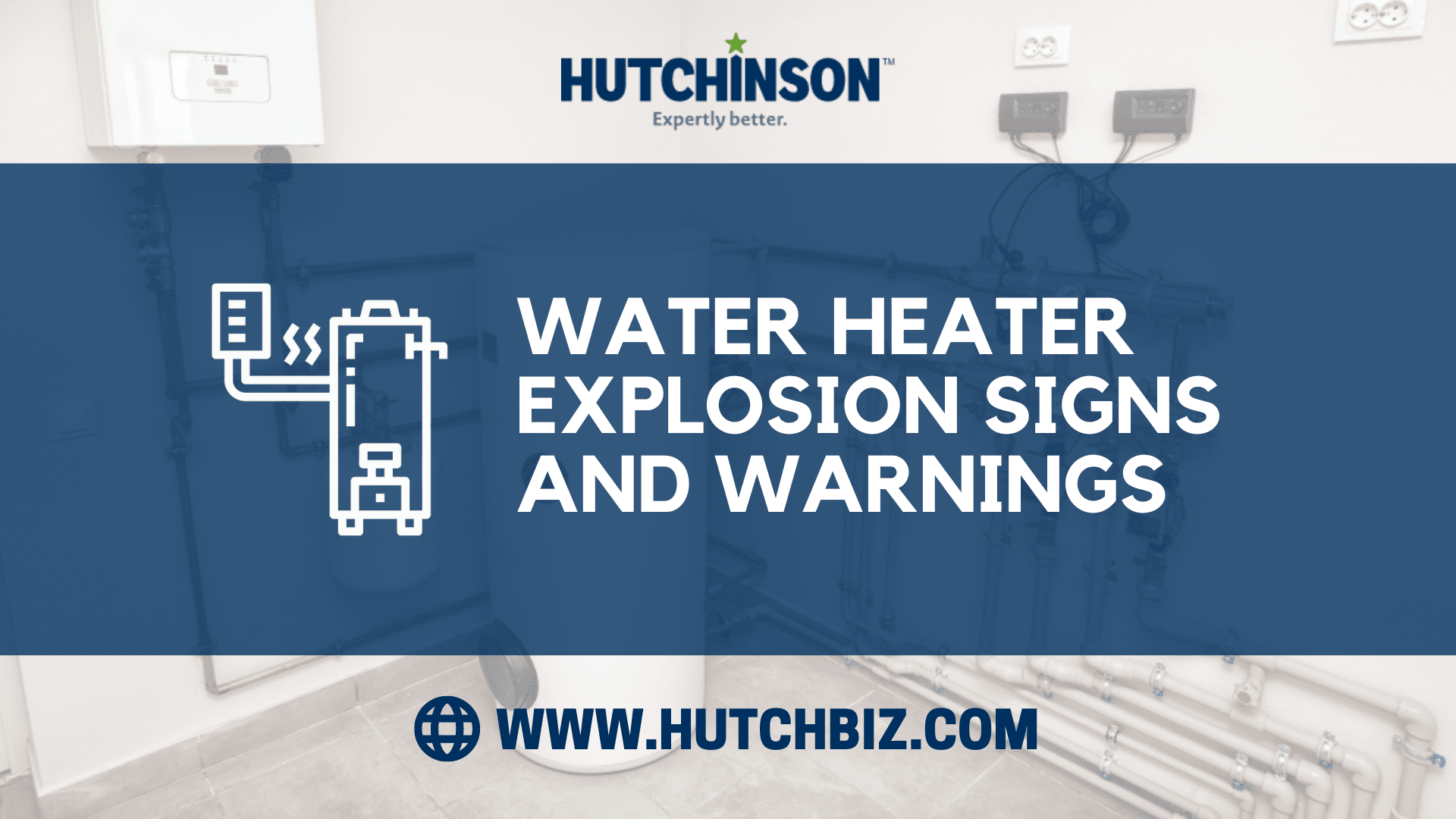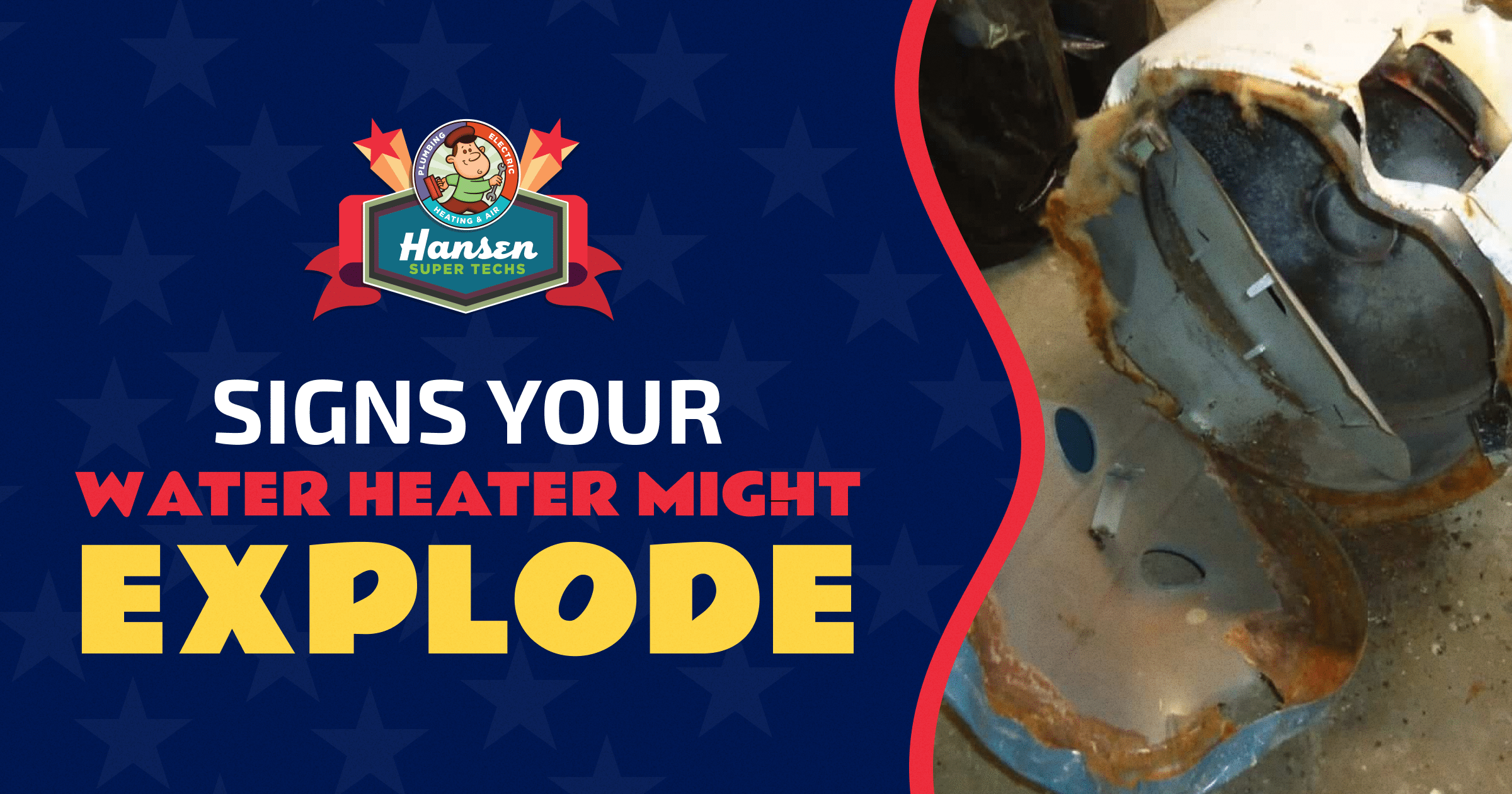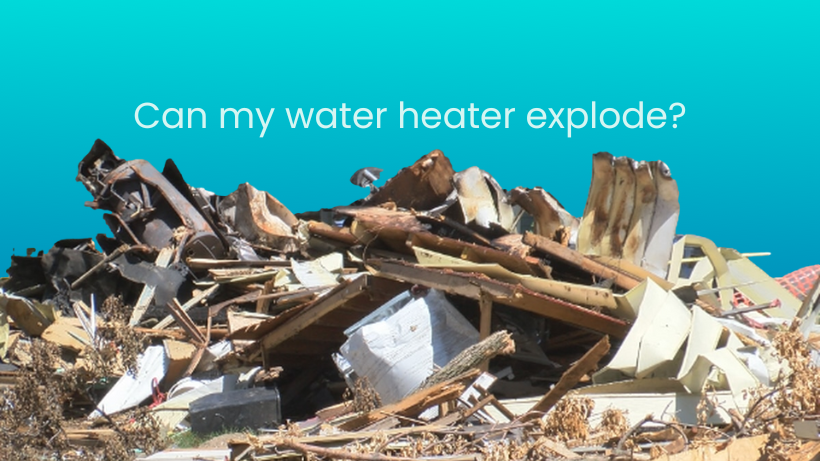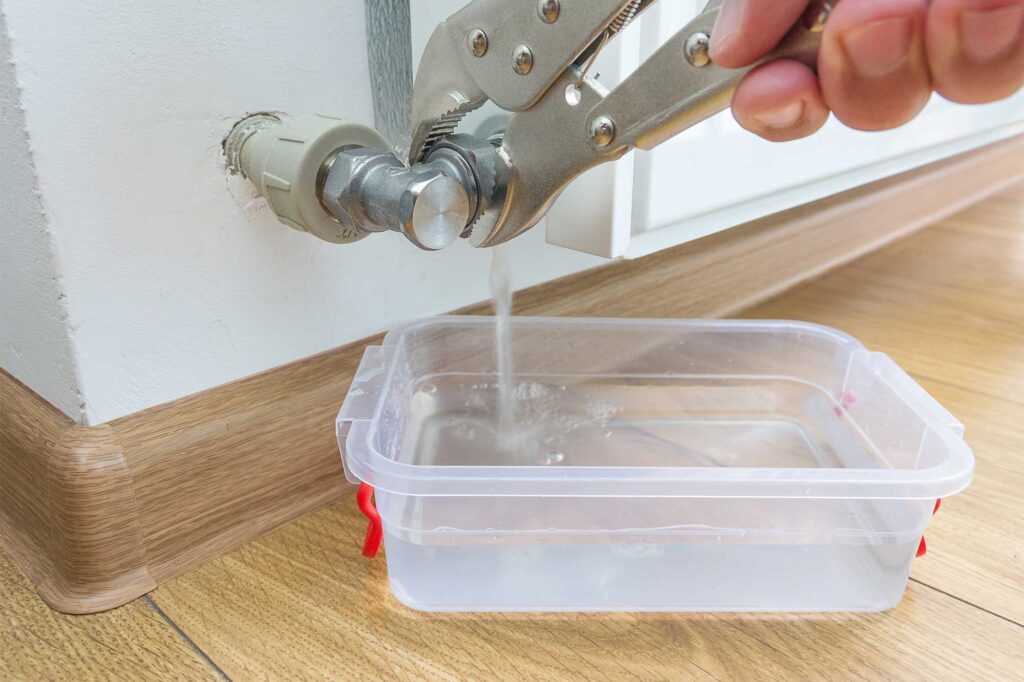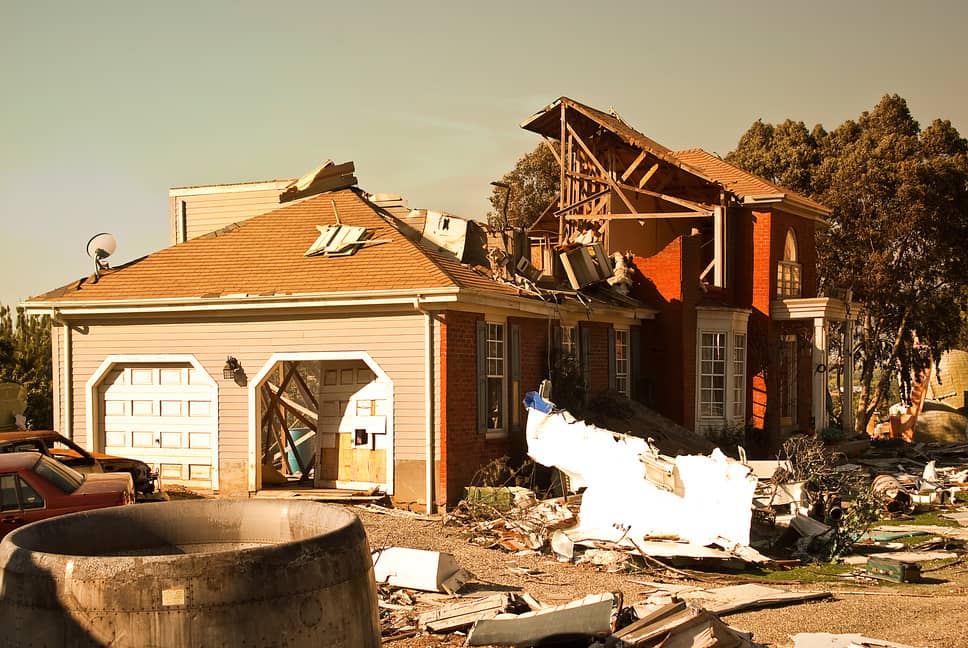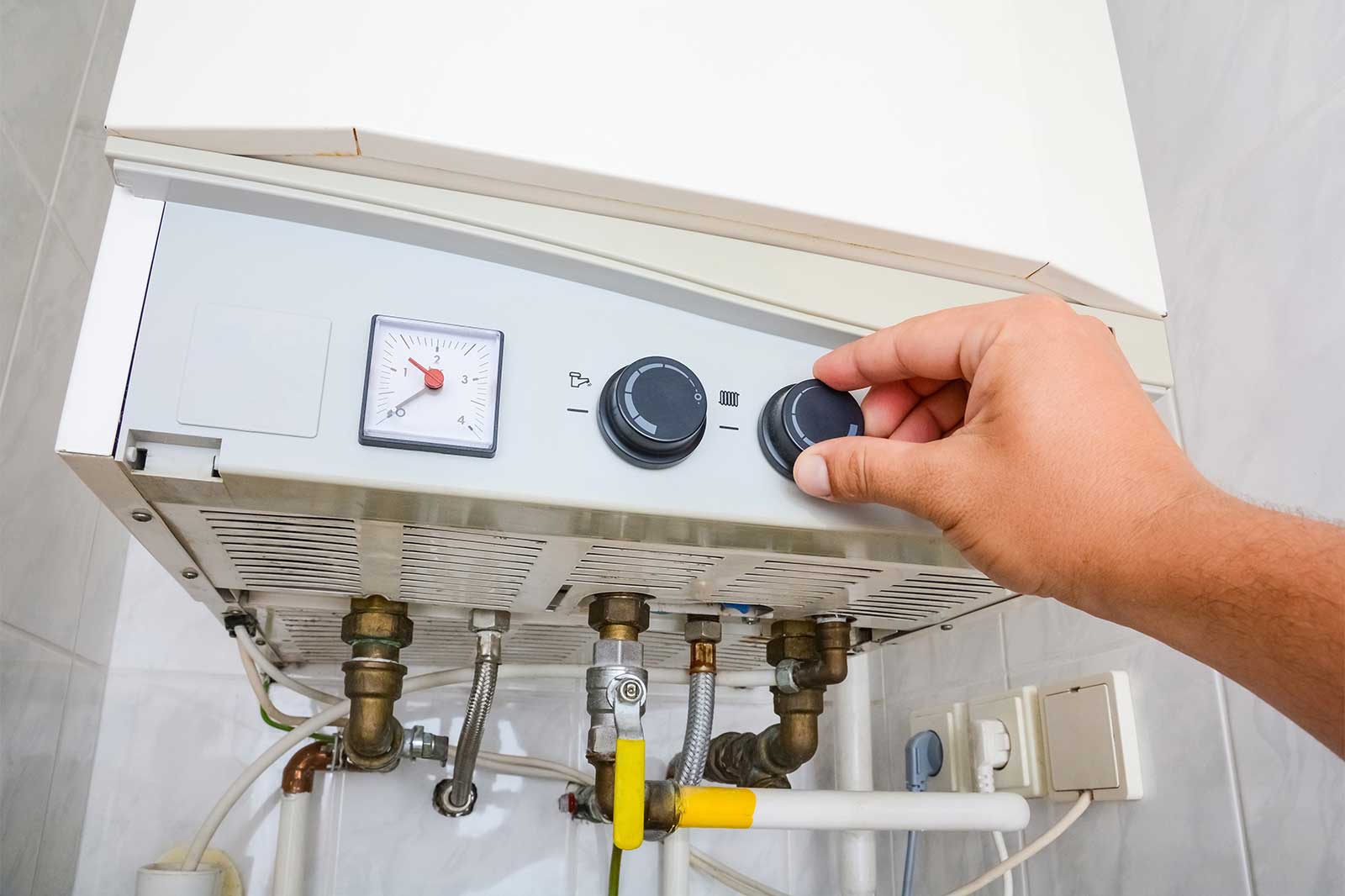Why Would A Water Heater Explode

The Silent Threat: Understanding Water Heater Explosions and How to Prevent Them
Water heaters are often the unsung heroes of our homes and businesses, reliably providing hot water for showers, laundry, and dishwashing. We rarely think about them until something goes wrong. While a full-blown explosion is rare, it's a serious possibility that homeowners and business owners should be aware of. And more importantly, understanding the causes can help you implement preventative measures, save energy, and potentially avoid a catastrophic event. This article delves into the factors that can lead to a water heater explosion, how to spot warning signs, and steps you can take to ensure your system operates safely and efficiently. For businesses considering an upgrade, this is also crucial information to help you consider safer commercial hot water options.
The Anatomy of a Potential Disaster: How Water Heaters Work (and Fail)
A typical water heater is essentially a large insulated tank that heats and stores water. Cold water enters the tank, where it's heated by either a gas burner (in gas-powered models) or electric heating elements. As the water heats, it expands. This expansion is controlled by several safety mechanisms, including a temperature and pressure relief valve (TPR valve). This valve is designed to automatically release excess pressure if the temperature or pressure inside the tank exceeds safe limits.
So, what causes an explosion? In short, it's a buildup of excessive pressure that the tank can't contain. This pressure can result from:
- Excessive Temperature: If the thermostat malfunctions and fails to shut off the heating element or gas burner, the water temperature can climb to dangerous levels.
- Excessive Pressure: A faulty or blocked TPR valve prevents the release of excess pressure. This is often due to mineral buildup from hard water.
- Combustible Gas Leaks: In gas water heaters, a gas leak can create a fire or explosion hazard if ignited by the pilot light or burner.
Imagine a pressure cooker with a stuck release valve. The pressure inside builds and builds until the cooker eventually bursts. A water heater explosion is a similar, albeit far more dangerous, scenario. The force of the explosion can be devastating, potentially causing significant damage to your property and putting lives at risk. In fact, an exploding water heater can propel shrapnel through walls and ceilings, turning a common household appliance into a lethal projectile.
The Warning Signs: Recognizing the Red Flags Before Disaster Strikes
Fortunately, water heater explosions are often preceded by warning signs. Paying attention to these indicators can help you prevent a potentially catastrophic event:
- Strange Noises: Rumbling, popping, or hissing sounds coming from the tank can indicate sediment buildup, overheating, or pressure issues.
- Leaking Water: Any leaks around the tank, fittings, or TPR valve should be investigated immediately. Leaks can indicate corrosion, loose connections, or a malfunctioning valve.
- Rust-Colored Water: Rust in your hot water suggests corrosion inside the tank. Corrosion weakens the tank walls, making it more susceptible to rupture.
- Decreased Hot Water Supply: A reduction in the amount of hot water available can indicate sediment buildup or a failing heating element.
- High Energy Bills: A sudden spike in your energy bill could signal a malfunctioning thermostat or a leaking tank, as the heater works harder to maintain the desired temperature. Energy Star certified water heaters can help save a significant amount of money and are much more efficient overall.
If you notice any of these warning signs, it's crucial to take action immediately. Contact a qualified HVAC technician to inspect your water heater and address any potential problems.
Preventing Explosions: A Proactive Approach to Water Heater Safety and Energy Efficiency
Preventing a water heater explosion is relatively straightforward with regular maintenance and a proactive approach. Here are some essential steps you can take:
- Regular Maintenance: Schedule annual inspections and maintenance with a qualified HVAC technician. This includes checking the TPR valve, flushing the tank to remove sediment, and inspecting the anode rod (a sacrificial rod that prevents corrosion).
- TPR Valve Testing: Test the TPR valve at least twice a year. Carefully lift the lever on the valve to release some water. If the valve doesn't release water or continues to leak after you release the lever, it needs to be replaced.
- Sediment Flushing: Flush the tank regularly to remove sediment buildup. Sediment reduces the efficiency of the water heater and can contribute to overheating and pressure problems.
- Anode Rod Inspection and Replacement: The anode rod protects the tank from corrosion. Have it inspected and replaced as needed. Depending on the water quality, this is usually every 3-5 years.
- Proper Installation: Ensure your water heater is installed correctly by a qualified professional. Improper installation can compromise safety and efficiency.
- Temperature Setting: Set the water heater temperature to 120°F (49°C). This is a safe and energy-efficient temperature for most households. Higher temperatures increase the risk of scalding and energy waste.
For commercial properties, preventative maintenance is even more critical. A large, industrial water heater explosion could lead to significant downtime, property damage, and potential liability issues. Commercial HVAC contractors often offer preventative maintenance plans that can help ensure the safe and efficient operation of your system. These plans often include regular inspections, testing, and repairs, as well as priority service in case of emergencies.
Smart Solutions for Enhanced Safety and Efficiency
Integrating your water heater with a smart home system can provide an extra layer of safety and energy efficiency. Smart water heater controllers and sensors can monitor water temperature, pressure, and flow, providing real-time data and alerts to your smartphone or tablet. Some smart systems can even automatically shut off the water heater if a leak is detected or if the temperature or pressure exceeds safe limits. These systems often come with remote monitoring features that allow you to check the status of your water heater from anywhere. Energy Star has published a lot of recommendations for smart HVAC controls that also apply to smart water heaters.
Beyond safety, smart water heater systems can also help you save energy. By monitoring your hot water usage patterns, these systems can optimize heating schedules to reduce energy waste. For example, you can program the water heater to automatically lower the temperature or turn off completely when you're away from home or during periods of low demand.
Choosing a Safe and Efficient Water Heater: Considerations for Homeowners and Businesses
When it's time to replace your water heater, consider these factors to ensure safety, efficiency, and long-term cost savings:
- Tankless Water Heaters: Tankless water heaters heat water on demand, eliminating the need for a storage tank. This reduces the risk of explosions caused by pressure buildup and also saves energy by only heating water when it's needed. They are also excellent options for smaller spaces where a traditional tank might not fit.
- Heat Pump Water Heaters: Heat pump water heaters are among the most energy-efficient options available. They use electricity to move heat from one place to another, rather than generating heat directly. This can save you significantly on your energy bill. They are often eligible for rebates and tax credits.
- Consider your family needs: The size of your home, the number of occupants, and usage habits will affect the size of water heater you need.
- Gas vs. Electric: Each have their own pros and cons, and the best choice will depend on your specific needs and local energy costs.
- Energy Star Certification: Look for water heaters that are Energy Star certified. These models meet strict energy efficiency guidelines and can save you money on your energy bills over the long term.
Businesses should also consider the scalability and redundancy of their hot water systems. For example, installing multiple smaller water heaters instead of one large tank can provide backup in case of a failure and allow for more efficient heating during periods of low demand. This is particularly important for businesses that rely heavily on hot water, such as restaurants, hotels, and hospitals.
Financial Incentives and Rebates: Reducing the Upfront Cost of Energy-Efficient Upgrades
Many utility companies and government agencies offer rebates and incentives for homeowners and businesses that install energy-efficient water heaters. These incentives can help offset the upfront cost of upgrading to a more efficient system and make it easier to realize long-term energy savings. Be sure to check with your local utility company and state energy office to see what incentives are available in your area. The federal government often offers tax credits for qualified energy-efficient home improvements, including water heaters. Consulting with an HVAC contractor can also help you navigate available incentives and choose the most cost-effective option for your needs.
Conclusion: Prioritizing Safety and Efficiency for Long-Term Savings
Water heater explosions are a serious safety hazard that can be prevented with proper maintenance, proactive monitoring, and smart technology. By understanding the causes of explosions, recognizing the warning signs, and taking steps to prevent them, you can protect your property and loved ones. Investing in an energy-efficient water heater can also save you money on your energy bills and reduce your environmental impact. Whether you're a homeowner looking to improve your home's safety and efficiency or a business owner seeking to optimize your operations, prioritizing water heater safety and efficiency is a smart investment that pays off in the long run. Remember to always consult with a qualified HVAC professional for any water heater maintenance, repair, or replacement needs. Regular maintenance and a proactive approach are the keys to ensuring the safe and efficient operation of your water heater for years to come.

